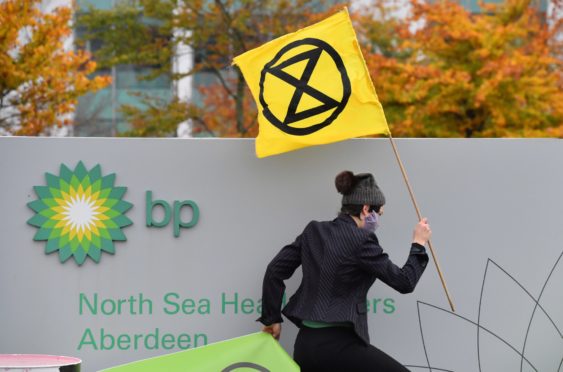Extinction Rebellion activists have dumped “mounds of manure” outside the BP offices in Aberdeen as part of a climate protest.
With a bit of toilet humour, the group said it was calling out the oil giant’s climate goals after the firm announced it would be teaming up with Aberdeen City Council on its net zero ambitions.
Yolanda Cowen, part of the Aberdeen team who delivered the soil spill, said: “You would not trust a tobacco company to provide cancer care, so why are our political representatives allowing the least trustworthy company to muscle in on the most pressing issue of our time?
“They are literally the last people who should be asked.”
Scottish Conservative energy spokesman and north-east MSP, Alexander Burnett, said: “The North Sea is a huge asset to the north-east and Scottish economy and guarantees the UK is not reliant on other countries to keep the lights on.
“Climate change will be solved by practical actions not unlawful protests which harm and cause unrest in the area – in this case Dyce.
“The issue around carbon footprint is something we must all work together on but dumping manure outside BP’s headquarters is not the answer.
“Everyone including BP has a role to play but these kinds of irresponsible protests are not representative of the way people want to influence change.”
A statement issued my BP said: “We arrived at our net zero ambition and strategy through constructive dialogue with a wide range of stakeholders, including many challenging voices – this was driven by dialogue, not by stunts.
“Our strategy is clear – by the end of the decade we aim to have developed around 50 gigawatts of net renewable generating capacity – a 20-fold increase. We also aim increase our annual low carbon investment 10-fold to around $5 billion and we plan to cut our oil and gas production by 40%.
“Many climate leaders have welcomed this strategic pivot from International Oil Company to Integrated Energy Company, but we recognize that some remain sceptical and that we must demonstrate through our transformation that we are on target for net zero by 2050 or sooner.”
Read more on Energy Voice.
